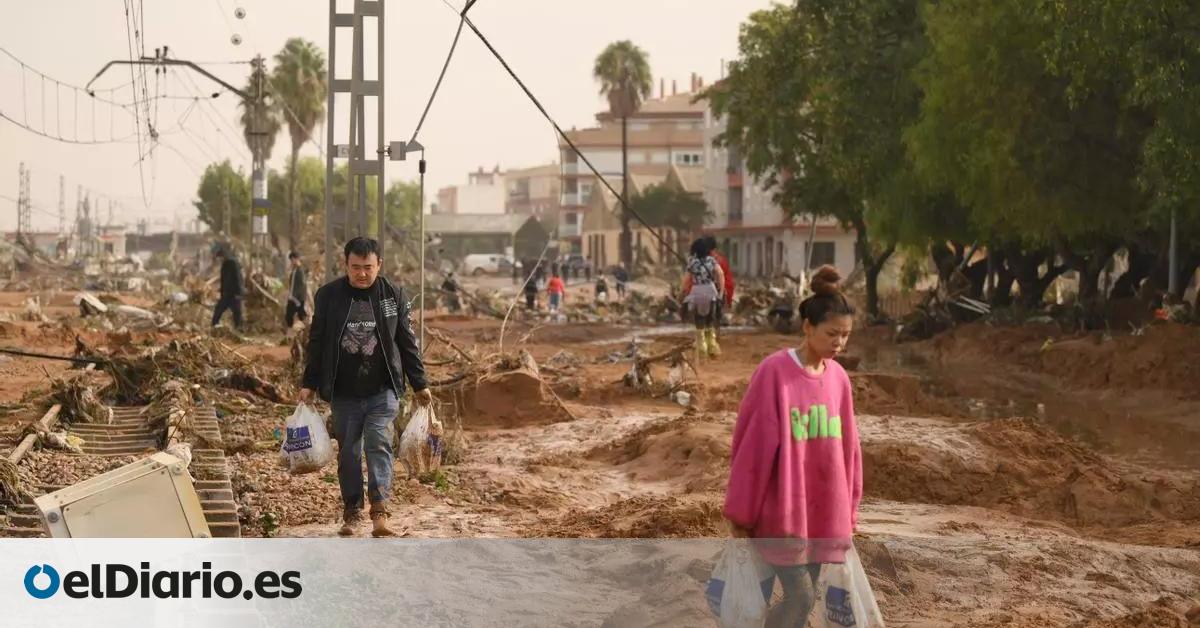
The floods suffered in the Valencian Community and Albacete in the month of October have had an estimated economic repercussions of around more than 4,000 million euros, which has placed them as the tenth most costly natural disaster in the world in 2024.
It is one of the results revealed in the report carried out annually by the Christian Aid organization, which recalls that, despite the values on which this study moves, it is likely that the real financial costs are even higher (for example, due to losses in crop production, or delays in trade).
In 2023, this same study placed the drought that Spain was going through in ninth position. By 2024, the economic loss that the report estimates in relation to DANA is equivalent to around 3% of the GDP of the entire Valencian Community.
“Once again, this report shows us that climate change is already taking an unbearable toll on our lives. In the last 12 months, extreme weather has killed thousands of people around the world and caused massive damage to our cities and natural ecosystems,” lamented Davide Faranda, director of research in climate physics at the Pierre Simon Laplace Institute (France). , upon knowing the results.
United States, the most affected country
The country that has suffered the most economic losses due to extreme weather events this year has been the United States. The storms that have been hitting the country throughout the year have meant around 60 billion dollars in economic loss, which would be around 83% of the GDP of a country like Slovenia.
Hurricane Milton, which also hit the North American country, ranks second in terms of the economic consequences it produced, also estimated at a value of around 60 billion dollars.
On the other hand, Hurricane Helena, one of the most destructive since Katrina due to climate change, also devastated US territories and, in parallel, shook places in Mexico and Cuba. These three catastrophes claimed the lives of a total of 345 people.
Other places in the world that are seriously affected economically this year as a result of extreme weather are several areas in Asia, such as China, a country in which 315 people died as a result of the floods that took place between June and July, and where a economic cost of around 15.6 billion dollars. On the other hand, in Southwest Asia, Typhoon Yagi claimed the lives of more than 800 people. The consequences in economic terms were 12.6 billion dollars. The Caribbean Islands and Brazil also suffered serious losses from cyclones or floods.
Three European regions have been affected
In seventh place is Storm Boris, which caused havoc in central Europe, costing approximately $5.2 billion. In ninth place is the catastrophe that caused the floods in Bavaria, in Germany, a region that lost the equivalent of about 4.45 billion dollars. Adding these two catastrophes to that of DANA, Europe’s economic loss is equivalent to about 13.87 billion dollars.
But no region of the globe was spared from these events in 2024. Although the top ten focuses on financial costs, which are typically higher in richer countries because they have higher property values, some of the most devastating extreme weather events in 2024 affected poorer countries, which have done little to cause the climate crisis and they have fewer resources to respond.
An increasingly extreme climate
Christian Aid chief executive Patrick Watt says: “The human suffering caused by the climate crisis reflects political decisions. There is nothing natural about the increasing severity and frequency of droughts, floods and storms. Decisions to continue burning fossil fuels and allow emissions to increase are worsening disasters. In 2025, we need to see governments leading and taking action to accelerate the green transition, reduce emissions and finance their promises.”
Indeed, the number of disasters has quintupled in the last 50 years due to the climate emergency. This was stated by the World Meteorological Organization in 2022.
This is also evidenced by the different attribution studies that have been carried out in recent years. According to Carbon Brief, which has been mapping hundreds of these investigations on its website for years, climate change has made around 70% of the extreme weather events of the last decade more likely or more intense.
Precisely one of the latest attribution studies found that the climate crisis situation in which the planet is immersed doubled the probability of the Valencia DANA occurring and caused the rains to be 12% more intense.
Source: www.eldiario.es

